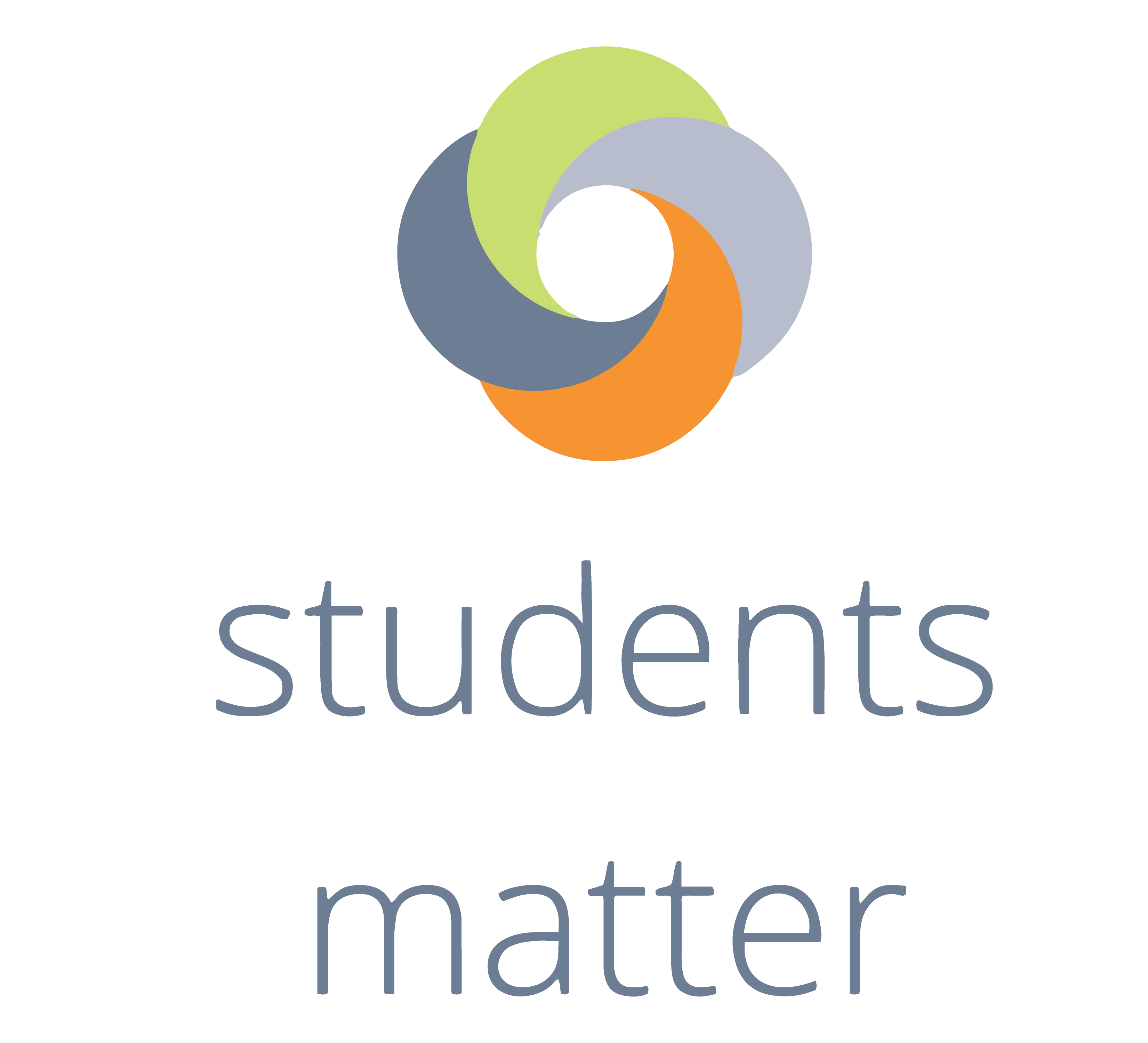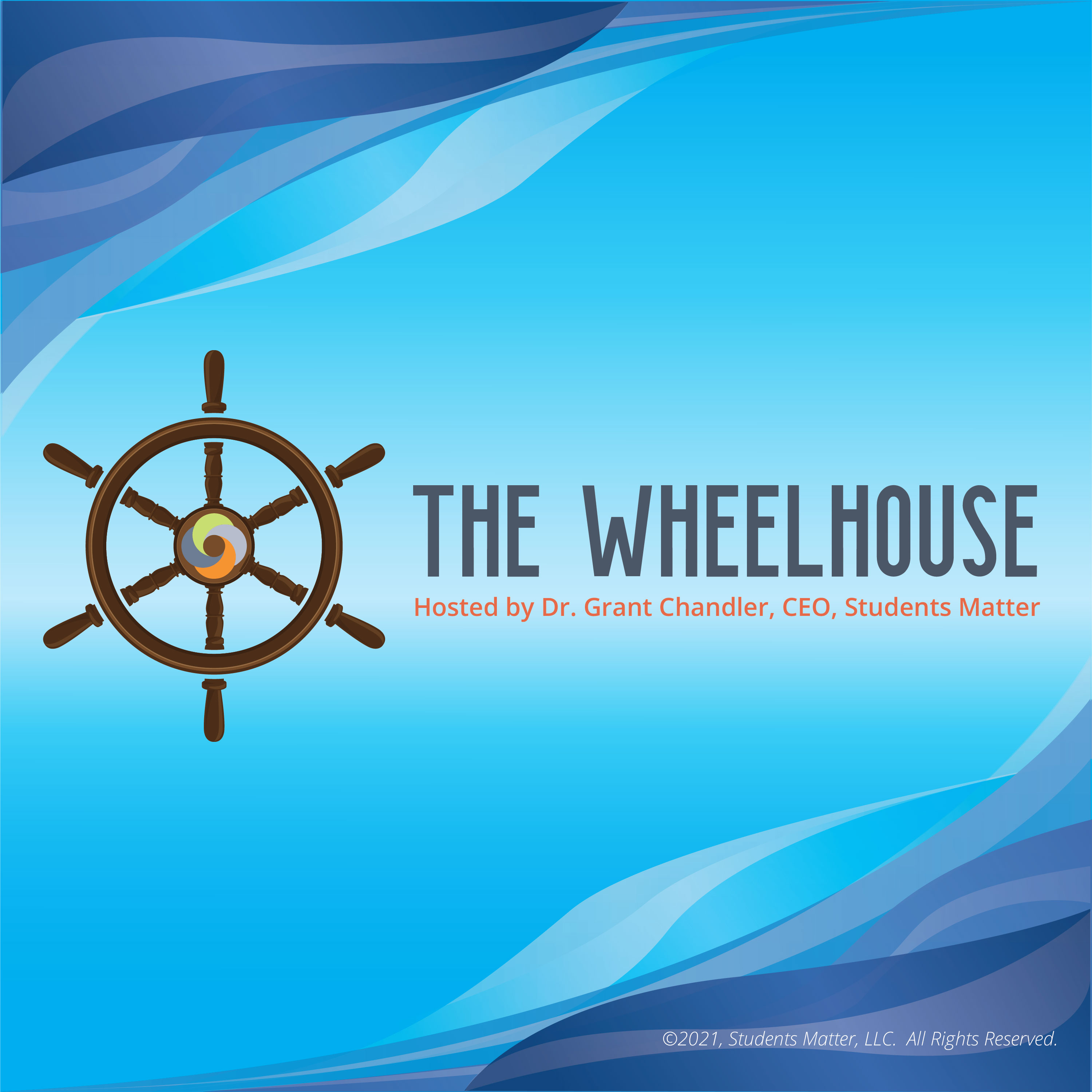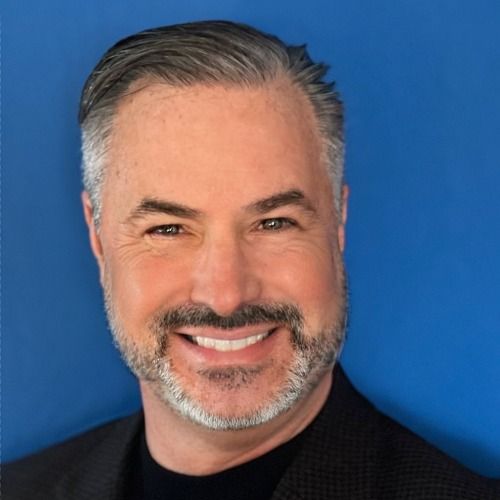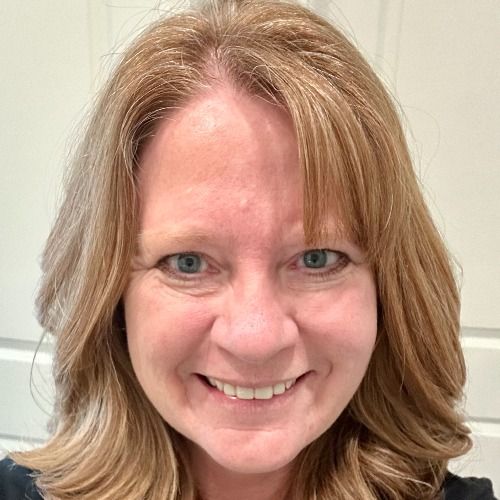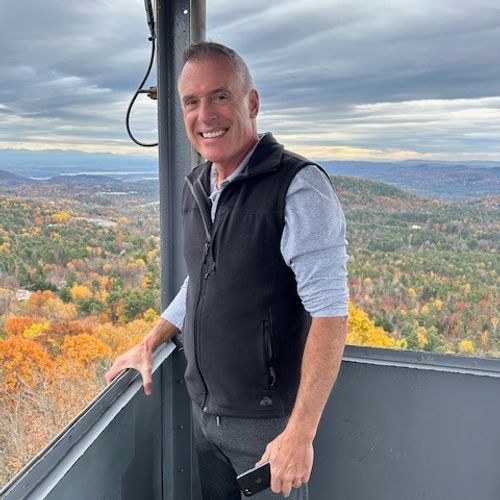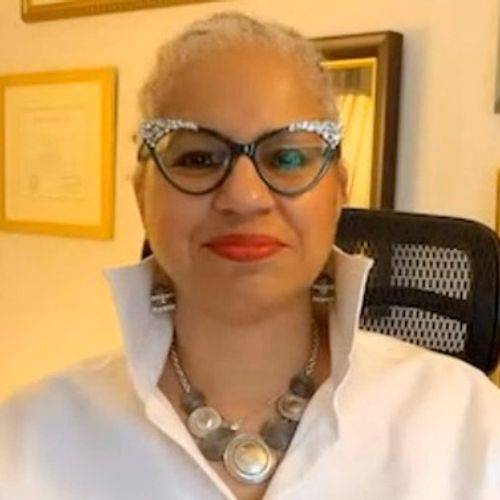Innovation Rooted in Humanity: A New Educational Paradigm
Future readiness in education transcends mere technological advancements; it is fundamentally about fostering a profound human connection within our schools. As we embark on this new season of The Wheelhouse, we assert that innovation must be rooted in humanity, emphasizing that effective educational practices honor the identities and aspirations of each student. We explore how cultivating hope and nurturing opportunities can lead to robust, future-ready learning environments, where innovation serves to amplify rather than replace human interaction. Our discussions aim to illuminate the imperative for educational leaders to embrace this radical humanization of schooling, ensuring that every learner is empowered to realize their dreams. Together, we will navigate the complexities of designing educational spaces that truly reflect our shared humanity and the potential of all students.
Additional Notes
The discourse surrounding future-ready education emerges as a profound exploration of the essence and trajectory of contemporary schooling. As The Wheelhouse team delves into this theme, they grapple with the intricate question of what it truly means to prepare students for an uncertain future. The conversation is anchored in the notion that future readiness transcends mere technological integration and buzzword-laden jargon; it embodies a radical humanization of educational environments. In this context, we assert that innovation must be fundamentally rooted in humanity, ensuring that educational institutions foster hope, cultivate opportunities, and serve the holistic needs of learners. Through the lens of shared humanity, we aim to design educational experiences that are inclusive and empowering, thereby enabling every student to realize their potential and pursue their aspirations. The episode concludes with a call to action, urging educators and leaders alike to embrace a paradigm shift that prioritizes dignity, agency, and belonging, thereby paving the way for a more equitable and compassionate future in education.
Takeaways:
- Future readiness transcends mere technological obsession; it fundamentally embodies our shared humanity.
- True innovation in education must prioritize human connection and the cultivation of hope.
- A future-ready school fosters an environment where every student feels empowered and valued.
- We must ask ourselves if our educational practices are nurturing dreams or stifling potential.
- The journey towards future-ready learning involves acknowledging and embracing the identities of our students.
- To realize our vision for future-ready schools, we must engage in honest and reflective dialogue.
Join The Wheelhouse Company!
If you’re a like-minded educator who believes the future of learning must stay human-centered, we’d love for you to stay connected.
Follow Students Matter, LLC on Instagram or LinkedIn — or find any of us there: Kathy Mohney, Michael Pipa, Dr. Alicia Monroe, and me, Dr. Grant Chandler.
And we’re thrilled to invite you to step inside The Wheelhouse: Below Deck at Learn Harbor — our new online space where these conversations come to life.
It’s more than a platform — it’s a community.
A free, curated, safe harbor for educators, leaders, and thinkers who want to reflect, connect, and take action together.
Inside Below Deck, you’ll find our special segment: The Wheelhouse: All Hands on Deck, extended content from today’s episode —where purpose meets possibility and learning stays joyful, collaborative, and deeply human.
- Join us at LearnHarbor.thinkific.com and become part of this growing movement to build Future Ready Schools — where innovation is always rooted in humanity.
Until Next Time Remember: Keep your doors open and your hearts even wider.
Transcript
What is future readiness?
Speaker A:How is it more than just buzzwords and a tech obsession?
Speaker A:Why must innovation be rooted in humanity?
Speaker A:And where are we going?
Speaker A:In season 11, a new episode of the Wheelhouse begins.
Speaker A:Right now, the future of education depends a radical humanization of schools.
Speaker A:Places where hope is cultivated, opportunities are opened, and innovation is harnessed to serve humanity.
Speaker A:Only then can we create futures worthy of each student's dreams.
Speaker A:We begin by cultivating hope.
Speaker A:We ensure possibilities are real and accessible.
Speaker A:We design futures rooted in humanity.
Speaker A:The future is already here, and it must be deeply human centered.
Speaker A:The Wheelhouse exists to create an inclusive community of empowered educators who believe that together we can disrupt the transactional nature of schooling and reimagine what it means to learn, lead, and belong.
Speaker A:We envision districts, schools and classrooms where every student feels confident, capable, optimistic, well supported, and emboldened to be and to become who they're meant to be.
Speaker A:Each episode of the Wheelhouse explores the knowledge, practice, and stories that bring this vision to life.
Speaker A:Our team, Kathy mone, Michael Pipa, Dr. Alicia Munro, and I, Dr. Grant Chandler, along with our guests, take on the fundamental challenge of realizing what we most want every student to experience in school.
Speaker A:Dignity, agency, belonging and mattering.
Speaker A:In season 11, we ask a simple but profound question.
Speaker A:Where are we going?
Speaker A:We strive toward future ready learning that keeps humanity at its core.
Speaker A:Under the theme Future Ready Innovation rooted in humanity, we affirm that future readiness is not defined by devices or data, but by our shared humanity.
Speaker A:True innovation doesn't replace human connection, it amplifies it.
Speaker A:A future ready school prepares students to thrive by honoring their identities, nurturing their creativity, and equipping them to engage with a changing world from a place of strength and purpose.
Speaker A:In today's episode, the Wheelhouse team begins to chart this course, exploring what it means to design future ready schools rooted in humanity, where hope fuels innovation and every learner's potential shapes the path ahead.
Speaker A:Ahead.
Speaker A:You're listening to season 11, episode one of the Wheelhouse.
Speaker A:Let's dive in.
Speaker A:Good morning.
Speaker A:Welcome to the Wheelhouse.
Speaker A:This is season 11, future ready schools.
Speaker A:Innovation rooted in humanity.
Speaker A:I am so excited.
Speaker A:The Wheelhouse team is here.
Speaker A:Kathy mone, Michael Pipa, Dr. Alicia Monroe, and yours truly.
Speaker A:Good morning and welcome to season 11.
Speaker B:Oh, my gosh.
Speaker C:We're back.
Speaker A:Good morning.
Speaker C:Good morning.
Speaker A:We didn't learn the word hiatus very well.
Speaker B:We can't.
Speaker B:We can't possibly stay away from each other.
Speaker B:We can't possibly lose this just outstanding momentum.
Speaker B:So here we are.
Speaker A:What an awesome encore to be able to listen to Mel King, Matt Pinchonot and Jim Veneta again, or for the very first time, if you missed them in season nine.
Speaker A:So we're super excited to replay, with some added content to replay those.
Speaker A: end of the year and even into: Speaker A:So this is super, super exciting.
Speaker A:Future ready innovation rooted in humanity.
Speaker A:So the big question for today, of course, is how do we ensure that as we design for the future, we don't lose sight of what makes us human?
Speaker A:So let's take just a few minutes and think about where have we been in season nine and season 10?
Speaker A:Because that has prepared us for a rich conversation in season 11.
Speaker C:So let's start with season nine, right?
Speaker C:Cultivating hope or killing dreams.
Speaker C:So it grounds us in our purpose.
Speaker C:Then we go on to infinite possibilities.
Speaker C:My word, if we're not thinking about the student's potential and maximizing the educational space for who we are and who are we as an educational community, that is it right there.
Speaker C:And now, future ready schools.
Speaker C:Man, we are sitting in some great, impactful space right now and I'm really excited to be along for the ride.
Speaker B:Yeah.
Speaker B:So cultivating hope really came out very organically out of our conversations with thinking about, you know, us coming together, the four of us, for the first time within that season, and that being, you know, Alicia, just one of the early episodes talking about cultivating hope and really grounding the work that we've done in understanding that we are either cultivating hope or killing dreams.
Speaker B:And what does that mean for each student that we're entrusted with?
Speaker B:And how do we then build open doors and unlimited possibilities with understanding who we are as educators, who our students are that we are responsible for?
Speaker B:How do we ensure that together we are making every space unlimited possibilities for them?
Speaker B:And now with everything that we have at our fingertips in education, and how do we ensure that we don't lose, ever lose sight of cultivating hope and open doors and unlimited possibilities?
Speaker D:Kath, you.
Speaker D:You hit it so well when you said that that phrase cultivating hope came out of a conversation organically.
Speaker D:And it was really you, Alicia, who gave us that statement, we're either cultivating hope or killing dreams.
Speaker D:And it was a beliefs conversation where we were invited to think about what is it that causes us to lean so consistently and deeply into the hardest work we've ever done.
Speaker D:And it's these beliefs.
Speaker D:And I feel like whenever we're approaching something that is challenging to the ethical structure that needs to be in place.
Speaker D:When we work at cultivating dreams, we have to return to what is it that we believe that's non negotiable, that we will not sacrifice or let go.
Speaker D:And I feel like as we think about future ready learning and future ready schools, we have to make sure that we're aligning whatever it is we dream with, what we believe.
Speaker A:This thinking about the absolutes.
Speaker A:Because there's no middle ground.
Speaker A:There's no middle ground cultivating hope or killing dreams.
Speaker A:There's not like, oh, I'm in the middle somewhere.
Speaker A:There is no middle right.
Speaker A:There is no middle.
Speaker A:Right.
Speaker A:And so how we approach what we do every single day is one or the other.
Speaker A:It's one or the other.
Speaker A:So we can think about test scores and state accountability.
Speaker A:And we know that it varies from state to state.
Speaker A:Right?
Speaker A:So I was recently in a district and we were looking at the district that's really trying to do different things.
Speaker A:And they were looking at their data, right?
Speaker A:And their data was not pretty.
Speaker A:Right?
Speaker A:It wasn't pretty.
Speaker A:And what was missing from the conversation that of course I had to add, right?
Speaker A:It's like, this isn't about accountability.
Speaker A:This isn't about test scores.
Speaker A:Those numbers represent potential and opportunity for children.
Speaker A:And it's either there or it's not.
Speaker A:So when you have kids struggling to do the things that should come as normal for schools, we gotta really think about this from a different lens.
Speaker A:Because as we look at that data, are we right?
Speaker A:That's a hard question to ask.
Speaker A:Are we cultivating hope or are we killing dreams for each and every one?
Speaker A:Right.
Speaker A:So when you look at, oh, well, yes, we're still sending kids to college.
Speaker A:Of course you are.
Speaker A:Of course you are.
Speaker A:Right.
Speaker A:But they would go to college anyway.
Speaker A:Their trajectory was set right before they even entered your doors.
Speaker A:Right?
Speaker A:What are we doing for everybody else?
Speaker A:Are we cultivating hope or are we killing dreams?
Speaker A:And what does that mean?
Speaker A:And how does that then translate to open doors and unlimited possibilities?
Speaker B:And in order to do that, you have to know who they are.
Speaker B:So we have to be able to ground everything that we do in who they are as humans.
Speaker B:And those trajectories may have been established, but we can, and we talked about this, that we can as educators, put barriers in front of them that then gets in the way of that potential and those opportunities.
Speaker B:So do we truly know them as human beings or are they numbers on a page, that data to be able to say we're accountable to this versus who are they?
Speaker B:But as we're Talking about, about Grant and not being proficient in a particular area.
Speaker B:Okay, but who is he?
Speaker B:Do we know what his hopes and dreams are?
Speaker B:Do we know anything about him as a human to be able to then nurture and grow and provide those spaces for him to be able to.
Speaker B:To reach that unlimited potential?
Speaker B:Are we getting in the way?
Speaker C:So Grant knows that he knows the five core anchors of my research as we move the needle from transactional hurting, from powerful student care to cultivating hope and dreams.
Speaker C:And the questions are very simple, but they make you uncomfortable because it really sits within ourselves.
Speaker C:So the five core questions, anchors, guiding principles to my research are who am I, who are we?
Speaker C:Who do we serve, how do we serve them?
Speaker C:And how do you know we are serving them well?
Speaker C:So the questions are the guiding principles.
Speaker C:The core anchors are five questions.
Speaker C:They seem simple, but if you dig deeper, you can see the continuum from transactional hurting to cultivating hope, unlimited possibilities.
Speaker C:So those are our mental models and our worldviews and bringing those into the spaces.
Speaker C:And are we really being inclusive or are we forcing individuals that are very diverse to assimilate?
Speaker C:Because my mental model is right, how are we actually positioning rightness, the ethic of rightness, in the spaces that we co create and coexist in?
Speaker C:I see that as a continuum where we started in season nine, laying the foundation and then putting that engine on right, and activating that groundwork and saying, oh, we're opening doors and we are creating unlimited possibilities.
Speaker C:And what is that going to look like, sound like, and feel like, well, we're going to tell you about future ready schools and innovative practices and approaches and research that tells us and dictates what, who we need to be as educators in the spaces that we occupy currently and in the future.
Speaker D:I wrote those questions down.
Speaker D:I wish I had them with me in the work that I was doing last week, where those five questions are such a powerful component for starting the conversation.
Speaker D:I did something similar, but I have question envy at this point because I just see and feel the potential of those questions to shift us from transactional thinking to inspired cultivating hope thinking.
Speaker D:And when we ask practitioners to shift into a belief conversation, my experience so far, and it's not deep and it's not varied, so I put that out there.
Speaker D:But what I've witnessed so far is that it is hard.
Speaker D:It is hard for people to step back from practice and to begin to talk about what they believe again.
Speaker D:And it can feel like a daring act because why are we spending energy on this?
Speaker D:And the answer is because if we don't plan for what we intend, what we don't intend will happen.
Speaker B:Sorry, Michael.
Speaker B:I think as we move into this innovation rooted in humanity and, you know, building on everything that, you know, has been said that Alicia lifted up and that you, Michael, were think, you know, added to that.
Speaker B:It's, it's really then about how do we, how do we ensure that that planning isn't simply utilizing AI, for instance, to be able to hand something to students to say, here you go, you know, here's another tool, here's just something else.
Speaker B:And if they choose to engage, then they do.
Speaker B:If they don't, then, you know, it's really on them.
Speaker B:They didn't.
Speaker B:But how do we ensure that that planning, that those mental models are rooted and the foundation of humanity, and how do we ensure that that is the driving force in understanding everything that we now have at our fingertips?
Speaker D:That's such a, an excellent question.
Speaker D:And Grant, when you shared some of the questions with us initially, my first response, you know, excited as it was that we were going to dig in this way, was to talk about Michael Fullen's work and the four right drivers for system success.
Speaker D:Whole system success.
Speaker D:And he, he talks about the drivers that are currently in place.
Speaker D:Not, not bad, inherently, not evil in and of themselves, but they're not primary drivers.
Speaker D:And when he gets to the second set of drivers, the one that's in place is machine intelligence, AI, and what needs to be the primary driver is social intelligence.
Speaker D:And his argument's very thorough, and he makes the case beautifully that we too often undervalue social intelligence and overvalue machine intelligence.
Speaker D:And he gives one example after the other.
Speaker D:And that, the question you ask, Kath just takes me right to that, that moment in his very persuasive argument about what those right drivers need to be and why.
Speaker A:So as we think about this work, right, we have been laying the groundwork away from the transactional herding nature of school, right?
Speaker A:Push every kid to the finish line, whatever the finish line is, and, you know, it's the same for everybody.
Speaker A:And, you know, where there's going to be winners and losers, and, you know, it's up to, you know, it's that relationship of, you know, I offered it, so you need to be ready to take it, right?
Speaker A:That, that's that transactional nature of schooling.
Speaker A:And of course, in season nine and season 10, we've talked about how that falls short and why that, why that doesn't work for everyone.
Speaker A:And, you know, we've, we've highlighted you know, lots of great examples in both of those seasons.
Speaker A:So as we move to season 11, what I'm excited about, right.
Speaker A:Is this term innovation rooted in humanity.
Speaker A:I'll argue, and I think my friends here will agree, that schooling has not been organized around humanity even before technology.
Speaker A:It was not rooted in humanity, it was transactional.
Speaker A:And what we are saying and what our conversations will be about in season 11 is that future ready schools understand that true innovation lies in humanity.
Speaker A:It's rooted in humanity.
Speaker A:So we think about all those other bells and whistles that are out there and are exciting or for some people, scary.
Speaker A:Right.
Speaker A:But they are there to help make schooling and the experience of each child as one that is rooted in humanity, belonging, dignity, mattering.
Speaker A: s that are available to us in: Speaker B:And how do we do that if it isn't originally there?
Speaker B:How does that shift happen without doing the pre work?
Speaker A:Yeah.
Speaker A:And there are tools.
Speaker A:There are tools and there is thinking out there.
Speaker A:And you know, I bring some thinking, we all bring some thinking to the table.
Speaker A:Right, right.
Speaker A:And we're going to invite guests who are going to come and share other pieces of thinking, other thoughts, other important considerations.
Speaker A:We're going to hear about cultural proficiency.
Speaker A:We're going to hear about the belief gap that Duane Chisholm talked about in season 10.
Speaker A:We're going to talk about that again.
Speaker A:Franklin Campbell Jones is going to talk about that with us.
Speaker A:Right.
Speaker A:We're going to talk about how we are trying to create spaces where representation matters, how we are thinking about how we use AI, how we're thinking about our neurodiverse student populations.
Speaker A:So there's, you know, there's going to be lots of opportunities in season 11 and beyond to explore a lot of different ways of thinking about innovation rooted in humanity.
Speaker A:But I think the hardest part, and I'll shut up and let you guys talk.
Speaker A:I think the hardest part is that we've never done this before.
Speaker A:Schools have never done this before.
Speaker A:And so it really requires leaders who are brave and courageous and who can take a leap and lead their people to realize this particular vision.
Speaker B:I think that last piece is exactly the key point that understanding, and we've talked about this on multiple occasions, that leadership matters.
Speaker B:And how do we as leaders in education ensure that we are prepared, that we're taking those steps to be able to support our educators, whoever they are, whatever title they hold within our organization, that we're ready to roll up our sleeves and do this work with them, not to them, but with them.
Speaker B:And our learning continues to deepen because as all of these things are coming at us in such a rapid fashion, how do we ensure as leaders that those beliefs around humanity, that who our students are and ensuring that they feel that sense of belonging is the focal point for our support, our leadership, for everyone.
Speaker C:So, Kathy, I think about the question that you posed and I, I'd like to drop that question down.
Speaker C:Are we compelled to lead or manage?
Speaker C:Two very different questions, and oftentimes they're Collapsed as 1.
Speaker C:Two very different sets of characteristics.
Speaker C:Leadership is transformative.
Speaker C:Management is transactional.
Speaker C:So the question to the listeners and beyond, if we're looking at future ready schools is, you know, are we going to be leaders?
Speaker C:Okay, well, strap those boots up because you have to be ready, willing and able to take on what leadership brings, or are we going to manage that means we maintain transactional, hurting and the status quo.
Speaker C:I'd like to put that out there.
Speaker C:Yeah, go ahead, Dr. Chandler, because I.
Speaker A:Want to piggyback on that, Alicia, because as we go back to this example of a district looking at data that wasn't pretty, a manager, a boss says, but how can we get 3% increase?
Speaker A:What can we do to get 3% increase?
Speaker A:And a leader says, wait a minute, wait a minute.
Speaker A:Who in this building, who in this district, who in this classroom cannot read?
Speaker A:And what happens to them if we don't fix that?
Speaker C:And we own it?
Speaker A:And we own it.
Speaker D:I want to submit that's a purpose and meaning question you're asking.
Speaker D:And leaders who are after a sense of purpose and meaning in the leadership work they do ask those kinds of questions.
Speaker D:And the kind of learning we want for our children is imbued with purpose and meaning.
Speaker D:It needs to be.
Speaker D:We are learning organizations where the learners are separate only by age.
Speaker D:That is it.
Speaker D:We have the same fundamental learning needs, and they include important facets like purpose and meaning.
Speaker D:And leaders who lead with an appetite for purpose and meaning will ask those questions and will view data appropriately through that lens so that those questions get centered.
Speaker D:What opportunities and what potential is being squandered because we are looking simply to move the needle?
Speaker A:And it goes back to the question that Alicia posed in Season nine.
Speaker A:If we look at that data, are we cultivating hope or are we killing a dream?
Speaker A:And so we think about, we think about this unlimited possibility that we have.
Speaker A:The choice is all ours as educators, as leaders.
Speaker A: about what we choose to do in: Speaker A:And I'm not saying the choices.
Speaker A:This is easy.
Speaker A:It takes highly skilled educators and leaders to do this work.
Speaker A:There is the blend of innovation and empathy.
Speaker A:There is a lot of soul searching to think about whether my toolkit is full and whether I am prepared to do what I need to do and how do I fill that toolkit.
Speaker A:This is what Future Ready Schools Innovation rooted in humanity is all, all about.
Speaker A:Our dear friends.
Speaker B:It's our moral imperative.
Speaker A:It is our moral imperative.
Speaker A: how, I can also say that it's: Speaker A:And I know that this is even harder.
Speaker A:This is even harder.
Speaker A:And here's my segue.
Speaker A:We are super excited to also talk to you today, not only about what we are thinking as we look at this amazing theme, this idea of Future Ready Schools innovation rooted in humanity, but we're also kind of rethinking and rebuilding our own wheelhouse infrastructure.
Speaker A:And I'm super excited to talk about the Wheelhouse Below deck.
Speaker A: w that These conversations in: Speaker A:They're very difficult.
Speaker A:It requires us having really, really honest conversation.
Speaker A:And sometimes we can't.
Speaker A:We don't feel like we can do that in a public space where people are being trolled and where people are being, you know, where there are hate, there are hate messages.
Speaker A:And, you know, every time I go into social media, I see somebody lamenting that they just been hate bombed or they've been, you know, whatever.
Speaker A:And so we've created and we've talked about it in at the end of our show, but we've really created.
Speaker A:We're really spending a lot of energy and time creating the Wheelhouse Below deck.
Speaker A:It is only available at Learn harbor, which is an online academy from students Matter who produces the wheelhouse?
Speaker A:It's free.
Speaker A:It's absolutely free.
Speaker A:We're not trying to sell you anything.
Speaker A:It is a space where we will curate the conversation.
Speaker A:We will ensure that it is a safe space and we can engage with each other in building this community of educators and leaders who are willing to ask each other these really deep, important questions in a space that is not public and where we can engage in meaningful dialogue.
Speaker A:So, my friends, as we think about really inviting people to join us in conversation and additional learning in the Wheelhouse Below Deck, what do you hope happens there in that space?
Speaker A:What are you hoping that we'll be able to do with our friends, have.
Speaker B:Conversation, have really honest, deep conversations to be able to further, to deepen our understandings, to be amongst, like minded individuals that will challenge us, that will honor us as humans, that we will create this sense of belonging, that everyone understands, that they matter.
Speaker B:Everything that we're intending to do in our classrooms, in our schools, in our districts, that's the space that we want.
Speaker B:That's what we're creating and to have honest, reflective dialogue.
Speaker C:Kathy that was the perfect psa.
Speaker B:Thank you.
Speaker B:Thank you.
Speaker A:Mic drop by Kathy Moni Absolutely.
Speaker B:Yeah.
Speaker B:Because we don't.
Speaker B:Where is it otherwise?
Speaker B:This is why we didn't dare take a huge hiatus, because this is that space for us, for the four of us, for us to be able to even before we start recording, after we record, we honor this space.
Speaker B:We value it.
Speaker B:And where it just you, you.
Speaker B:We want more of it.
Speaker B:We want to invite others into that space, connecting with all of these amazing humans that we have through the wheelhouse.
Speaker B:I want to, I want to talk to them more.
Speaker B:I want to save space to be able to do that, to stay connected and, and further those conversations.
Speaker A:So we know that a lot of podcast listeners just like to listen to a podcast.
Speaker A:And we hope that the conversations that we have and the dialogue and the content that we bring to you in the Wheelhouse, if that is enough to nourish your soul and to move you forward in doing this work, then absolutely, we hope you continue listening and we're going to continue producing content for you.
Speaker A:But if you are ready, willing and able and you want to engage in conversation around how we can do this work together, then you can join us at Learn harbor and you can become part of this growing movement of educators shaping future ready schools where innovation is always rooted in humanity.
Speaker A:And the link to the Wheelhouse below deck in Lerne harbor is in the show notes, but you can also find it at learnharbor.thinkific.com and that brings us to the end of this episode.
Speaker A:So we are super excited to launch season 11.
Speaker A:So we'll see you next week in the Wheelhouse.
Speaker A:And that's a wrap of season 11, episode one of the Wheelhouse.
Speaker A:A special thank you to our Wheelhouse team, Kathy Mona, Michael Pipa and Dr. Alicia Munro for helping us navigate this season's journey toward future ready schools.
Speaker A:Innovation rooted in humanity.
Speaker A:If you're a like minded educator who believes the future of learning must stay human centered, we'd love for you to stay connected.
Speaker A:Follow Students Matter LLC on Instagram or LinkedIn or find any of us there.
Speaker A:Kathy mone, Michael Pipa, Dr. Alicia Munro, and me, Dr. Grant Chandler.
Speaker A:And we're thrilled to invite you to Step inside the Wheelhouse Below Deck at Learn harbor, our new online space where these conversations come to life.
Speaker A:It's more than a platform, it's a community.
Speaker A:A free, curated, safe harbor for educators, leaders and thinkers who want to reflect, connect and take action together.
Speaker A:Inside Below deck, you'll find our new special segment, the Wheelhouse.
Speaker A:All hands on extended content from today's episode, where purpose meets possibility and learning stays joyful, collaborative and deeply human.
Speaker A:Join us at learnharbor.thinkific.com and become part of this growing movement to build future ready schools where innovation is always rooted in humanity.
Speaker A:Until next time.
Speaker A:Remember, keep your doors open and your hearts even wider.
